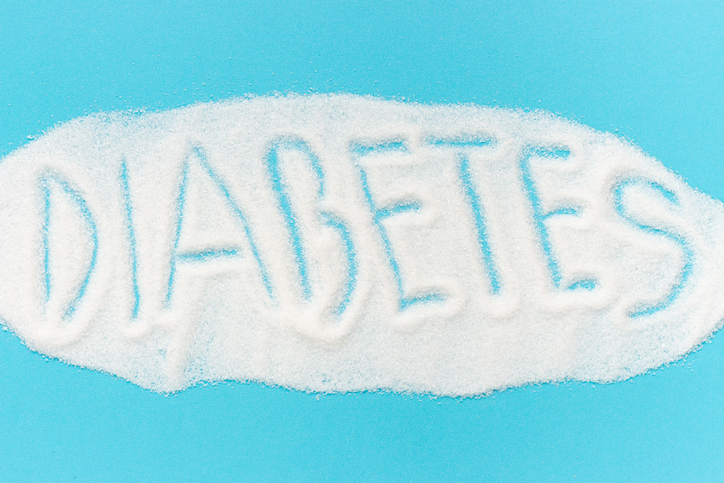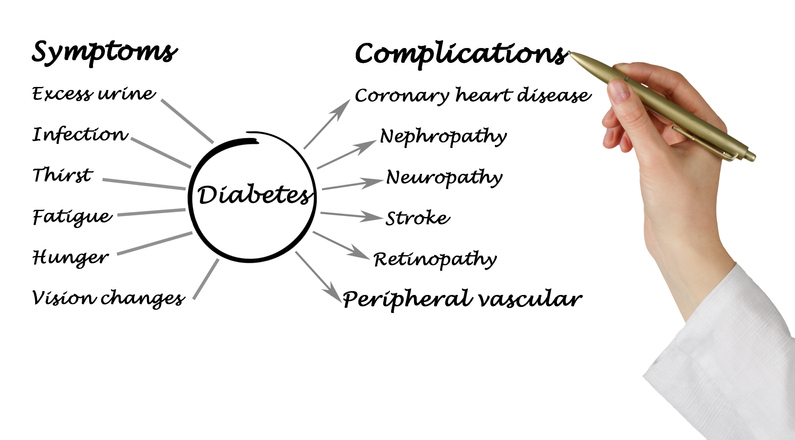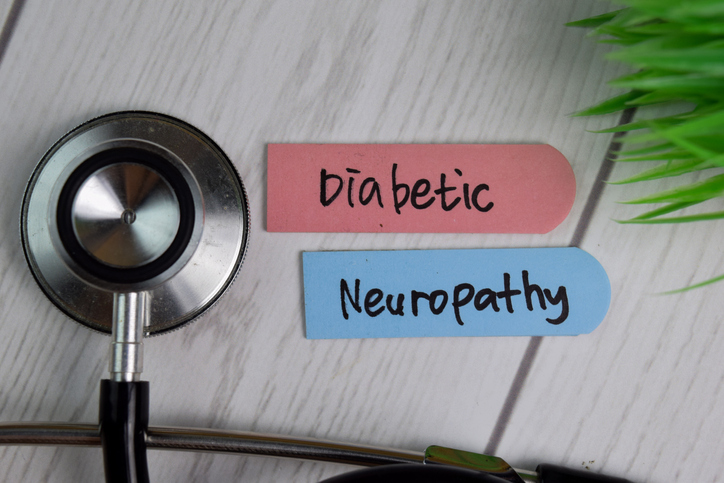Pain
What Is Diabetes Mellitus (DM)?

Diabetes mellitus, commonly known as diabetes, is a metabolic disease that affects the amount of glucose in the blood (blood sugar). The body breaks down food and drinks into a simple sugar called glucose. Glucose is then used by the body as a source of energy for the brain, muscle cells and tissue cells.
Diabetes mellitus occurs when the body doesn’t make enough insulin or can’t effectively use insulin. Insulin is a natural hormone produced by the pancreas; it transports glucose from the blood to the body’s cells to be stored and used for energy. When the pancreas produces little to no insulin or the cells in the body can’t effectively use insulin (insulin resistance), too much glucose remains in the bloodstream, resulting in hyperglycemia (high blood sugar).
Types
Types and subtypes of diabetes mellitus include, but are not limited to, type 1 diabetes, type 2 diabetes, prediabetes, gestational diabetes, type 3 diabetes and brittle diabetes.
Symptoms
Symptoms of diabetes mellitus vary depending on the body’s level of blood sugar. At times, symptoms may be absent, or they may be severe and develop quickly. General symptoms of diabetes include the following:
- Increased thirst
- Increased hunger
- Frequent urination
- Blurry vision
- Fatigue
- Irritability
- Slow-to-heal sores
- Unexplained weight loss
- Frequent infections (gum, skin, vaginal, etc.)
- Ketones in the urine
- Mood changes
Symptoms specific to males include the following:
- Erectile dysfunction
- Loss of muscle strength
- Decreased sex drive
Symptoms specific to females include the following:
- Yeast infections
- Urinary tract infections
- Dry or itchy skin
Causes
Depending on the type of diabetes, the cause of the condition varies. The exact cause of type 1 diabetes is unknown; it is thought to be a combination of genetics, the immune system and environmental factors. With prediabetes and type 2 diabetes, the cells in the body become resistant to insulin, and the pancreas is unable to make enough insulin to overcome the resistance. This is thought to be caused by a combination of genetic and environmental factors. Gestational diabetes develops when the hormone levels to sustain a pregnancy create insulin-resistant cells, and the pancreas is unable to keep up with insulin production.
Risk factors
Depending on the type of diabetes, the risk factors of developing the condition vary. In general, the risk factors for diabetes include, but are not limited to, the following:
- Family history of diabetes
- History of gestational diabetes
- Being overweight
- Physical stress (due to illness, surgery, etc.)
- Use of certain medications, such as steroids
- Autoimmune disease(s)
- High blood pressure
- Abnormal cholesterol and triglyceride levels
- Polycystic ovary syndrome
- Advancing age
- Smoking
- Injury to the pancreas
- African-American, Hispanic, Native American, or Asian-American race; Pacific Islander or ethnic background


















